What Memorial Day Means to Purple Heart Recipient Joey Jones
27 May 2022
CLAY: The show today began with the live press conference with more details being given about the shooting in Texas. We’re joined now by Joey Jones. You can see him a lot on Fox News. He is a military veteran. I know Memorial Day is particularly a moment of reflection in many ways for him. But, Joey, I want to start off with this. And, first of all, I appreciate you taking the time, man. When you hear the response…
We know that this guy is a murderous coward and that all of the condemnations should rain down upon him. But our response to that, the fact that the police took 75 minutes to decide to breach the door with a madman sitting there with a gun and young kids and potentially teachers still alive calling 911 begging for help, what’s your reaction to this?
JONES: Well, my first reaction is that it’s reminiscent of 2001. It’s reminiscent of pre-Homeland Security America where different agencies didn’t have the same protocols, didn’t have communication with one another. There wasn’t a concentric, on-site commander. These are things that we not only learned but canonized after 9/11 just so that fire and police could talk together, much less one police force talk to another.
There’s an ABC News report — I haven’t reposted it ’cause I got it about 24 hours ago, so very fresh. But in that report they talk about the school district upping its security budget from 200,000 to 450,000. They talk about some of the measures, and they outline two things in that ABC report that were allegedly done at that specific school. One was they didn’t have the same type of updated locking doors, because — allegedly — elementary schools are not seen as a higher value target than high schools.
 And the other thing was they talked about why the gate wasn’t locked and why some of the doors were propped open and they alleged that it was because it was awards day and parents were coming and going. And so these are all things that we’ll learn specifically as fact as we get more information. But the idea behind this is simply, is this a small town that didn’t have the resources or wasn’t trained appropriately or is this one singular person making a really bad call, or is it a little bit of both? And I think that’s kind of the questions people have.
And the other thing was they talked about why the gate wasn’t locked and why some of the doors were propped open and they alleged that it was because it was awards day and parents were coming and going. And so these are all things that we’ll learn specifically as fact as we get more information. But the idea behind this is simply, is this a small town that didn’t have the resources or wasn’t trained appropriately or is this one singular person making a really bad call, or is it a little bit of both? And I think that’s kind of the questions people have.
If you’re a parent there, you probably do want to assign blame, right? The person that’s truly responsible is dead. There’s no one to punish. There’s no recourse. So it’s human nature to look for someone to say, “You’re the person that I can be mad at,” and there will be a healthy amount of that. But when you take more steps back and it’s no longer a parent’s perspective but now an American’s perspective of what can we learn from this to do at this school, what can we learn from this to do nationally, I think that’s part of the conversation too. I mean, you know, right now there’s a lot of emotions, and those emotions should not go away. You had 19 children that had no reason to die and they did die.
CLAY: Joey, obviously we’re talking a lot and reacting a lot to this story. But your story. You are one of many veterans that are listening to this show right now. As we come into Memorial Day weekend, can you tell us about the injury that you had, your recovery and what Memorial Day means to you for all of our listeners out there?
JONES: Absolutely. I appreciate you asking. So quite simply, my story is not all that amazing or different. There are thousands of us out there, and that’s kind of what makes it special, that we have a fighting force of a little over a million, and among them are a lot of guys and gals who have suffered and sacrificed because they love this country so much. For me it’s quite simple. I was a EOD tech or a bomb tech in the Marine Corps. So my job was to help eliminate explosive hazards.
And those come in all shapes and forms, although most people think of one of what we call a roadside bomb or you read a few books, maybe an IED, a homemade bomb. And so that was the primary objective of my job circa 2010 in Afghanistan in the Hellmann region, which was essentially where the poppies grow, where we get a lot of the world’s opium, actually. So that’s what we were doing.
We were walking in a very agricultural area of Afghanistan attempting to get the people there to abandon the poppy harvest, adopt the wheat, harvesting and doing so financially cripple the Taliban and take away their ability to control an area as well. And so that was our job. We did it pretty well for about five and a half months. About five and a half months into it, we took a town called Safar Bazaar — and by “take,” I mean, we took control of a town called Safar Bazaar.
 And we did that because the enemy, the Taliban, was strategically using it to stockpile components that they would then turn into IEDs. So kind of like cut the river off upstream. And in order for us to do that — because we try to eliminate civilian casualties — we let the entire town know we were coming. So the enemy took all those stockpiled IED components and turned them into IEDs and put them in the ground. So we really rolled into a minefield.
And we did that because the enemy, the Taliban, was strategically using it to stockpile components that they would then turn into IEDs. So kind of like cut the river off upstream. And in order for us to do that — because we try to eliminate civilian casualties — we let the entire town know we were coming. So the enemy took all those stockpiled IED components and turned them into IEDs and put them in the ground. So we really rolled into a minefield.
So for five days a handful of us, about six EOD techs, rendered safe about 50 IEDs, more than 30 of them was my teammate and I alone, and on the sixth morning we had an opportunity to take a step further, not just clearing IEDs out of the streets but starting to clear the buildings as well. There’s a method to how we take a town — and when we started there, long story short, we ended up in a spot we hadn’t been before, thought it was secure. It wasn’t.
And I stepped on an IED that I didn’t know was there. So what that means is that it took my legs off above the knee on both sides, landed me in a hospital in Landstuhl, Germany. Woke up two days later. This would be August 10th or August 8th, 2010. And I didn’t have legs anymore. Most importantly, I was asking about my teammate that was with me, or my buddy that was with me. And, unfortunately, he didn’t make it.
And so that’s kind of… That set the trajectory for the rest of my life. And so what you learn is that you have to go and live well for those that didn’t make it. I look to him to live my life to the fullest because he’s not here to honor him that way. And so that’s the message I try to send on Memorial Day, not just to veterans that come back that lost brothers and sisters overseas, but most importantly to the family that lost a loved one, is we can memorialize ourselves by living our lives well, by smiling a little bit more and dedicate those smiles to ’em.
And not just fill the sadness that stays with us but has its place and its place is not always fronted of mind. Sometimes we can smile and enjoy and that’s where it ties into what Americans do on Memorial Day which is barbecue, enjoy a day at the lake and celebrate that this country is so amazing that in today’s world, people volunteer to risk their lives to keep it that way.
CLAY: That is so well said. Look forward to seeing you sometime again man and thank you for your service and I hope you and your family have a phenomenal Memorial Day weekend.
 JONES: Same to you. Keep up the good work. Enjoy listening to you.
JONES: Same to you. Keep up the good work. Enjoy listening to you.
CLAY: Hey, I appreciate that. It’s Joey Jones. He does fantastic work so many different places. Encourage you watch him on Fox News, where I see all the time. He’s doing incredible work there, and obviously he’s done incredible work for the country already, and I know there’s a lot of you out there who are veterans or serving right now that certainly connect with that story that he just told about his experience in Afghanistan and the loss of life of his buddy, his partner.
Recent Stories
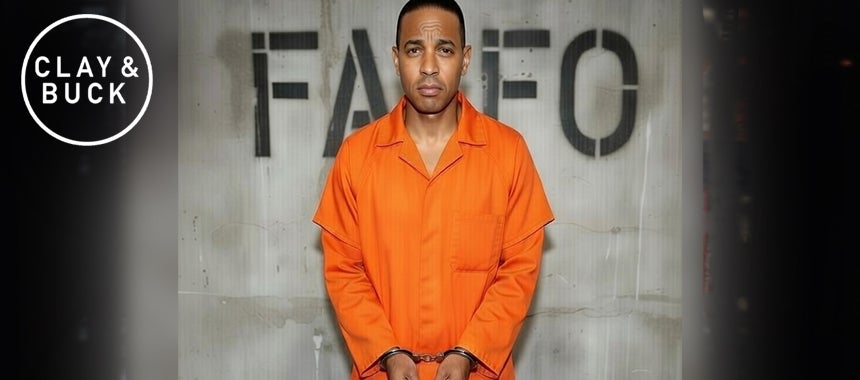
Don Lemon Arrested for Minneapolis Church Attack
Clay and Buck react to the Lemon indictment -- and they have the same take.
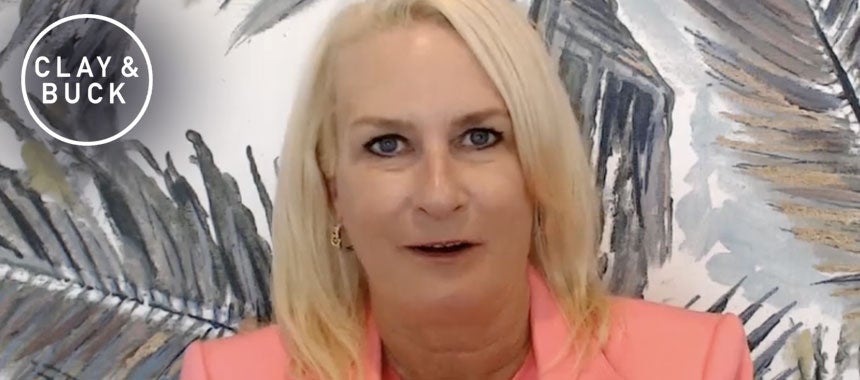
Julie Kelly Shares J6 Parallels to the Don Lemon Indictment
Nobody but Julie Kelly will tell you that "journalists" were charged for January 6th offenses.
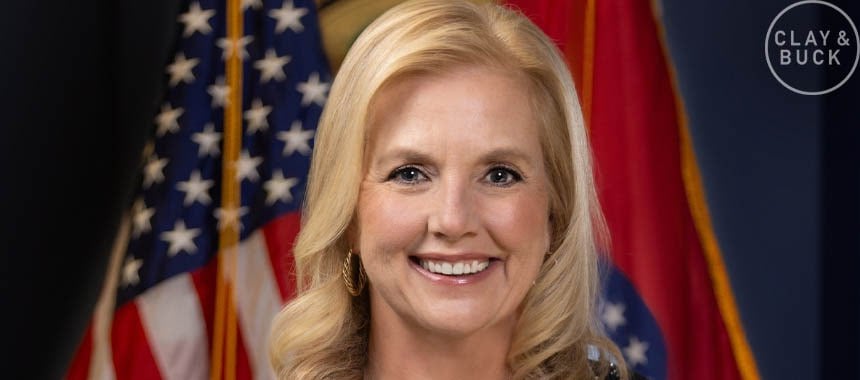
"Hijacked Representation": Missouri AG Explains Her Census Lawsuit
Catherine Hanaway's suit to stop the counting of illegals in the census.
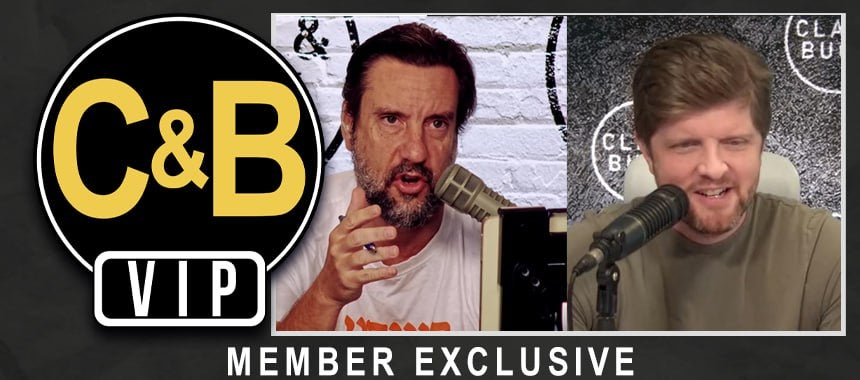
VIP Video: Journalists Fly Soviet Flag at Half Staff for Don Lemon
Clay and Buck break down some of the most histrionic media reactions.
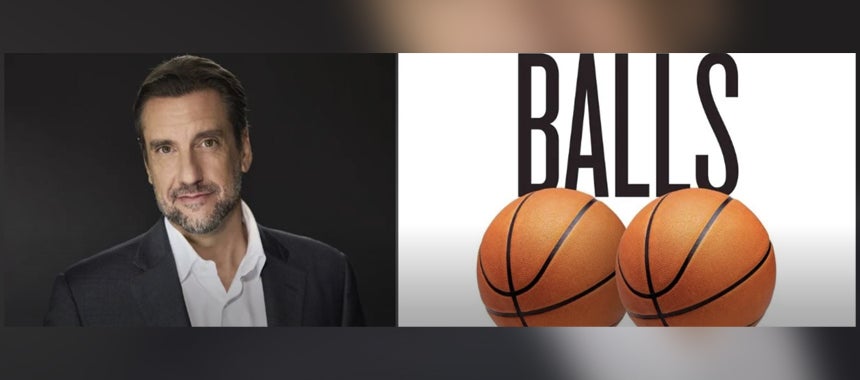
From ‘Balls’ to Broadcast: Clay Reflects on Media, Writing His New Book, and His Future
Check out Barrett Media's profile piece on Clay.





